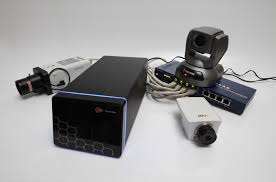Common Causes Of Car Accidents In Pennsylvania And How To Avoid Them

Driving in Pennsylvania can be challenging. Car accidents happen often, leading to injuries and stress. Many factors can cause these accidents. You may face distractions, bad weather, or poor road conditions. Each of these threats increases your risk. Understanding these causes helps you stay safe. You can take measures to prevent crashes. For example, when it’s raining, slow down and increase the distance between cars. If you’re tired, pull over and rest. Always check your mirrors and stay focused. Staying alert behind the wheel reduces your risk. Should an accident occur, a Pennsylvania car accident lawyer can provide guidance and support. By being proactive, you protect yourself and others on the road. Knowing the common causes helps you make informed decisions. Your safety and the safety of others depend on your actions. Stay informed, stay cautious, stay safe.
Distracted Driving
Distracted driving is a major cause of accidents. You might think a quick glance at your phone won’t hurt. However, even a few seconds can lead to disaster. Distractions include texting, eating, or adjusting the radio. To avoid this, keep your phone out of reach. Use hands-free options if necessary. Always finish tasks before starting your trip. Your focus should remain on the road.
Speeding
Speeding is another common factor. Many drivers underestimate the dangers of driving too fast. Higher speeds reduce your reaction time. In an emergency, you may not stop in time. Always follow posted speed limits. Remember, speeding not only endangers you but also others. A calm and steady pace is best for safety.
Poor Weather Conditions
Pennsylvania weather can be unpredictable. Rain, snow, and fog create hazardous conditions. These elements can reduce visibility and make roads slippery. Always check the weather before heading out. In bad weather, drive slower and turn on your headlights. Keep extra distance between you and the car ahead. If conditions worsen, consider delaying your trip. You can monitor weather updates through trusted sources like the National Weather Service.
Driving Under the Influence
Alcohol and drugs impair your ability to drive. Reaction times slow and judgment gets clouded. Never drive under the influence. If you’ve been drinking, use a designated driver or a rideshare service. Always plan ahead if you know you’ll be drinking. Keeping yourself and others safe is worth it.
Fatigue
Driving tired is dangerous. Fatigue affects your concentration and reaction time. Long trips can be tough without breaks. Pull over for a nap if you feel sleepy. Share driving duties on long road trips. Regular breaks help maintain alertness. Fatigue-related accidents are preventable with proper planning.
Reckless Driving
Reckless driving includes tailgating, aggressive lane changes, and ignoring traffic signals. These actions increase the risk of accidents. Practice patience and consideration. Use turn signals, keep safe distances, and follow traffic laws. Being courteous on the road benefits everyone.
Data Table: Common Causes and Preventive Measures
| Cause | Description | Prevention |
|---|---|---|
| Distracted Driving | Using phone, eating, or other non-driving activities | Keep focus on the road, minimize distractions |
| Speeding | Driving above the speed limit | Obey speed limits, allow more travel time |
| Weather Conditions | Rain, snow, fog reducing visibility | Check weather, slow down, increase distance |
| Driving Under Influence | Consuming alcohol or drugs before driving | Use designated drivers, avoid driving after consumption |
| Fatigue | Driving while tired or sleepy | Rest before driving, take breaks |
| Reckless Driving | Aggressive maneuvers and tailgating | Be patient, follow road rules |
Staying Prepared
Understanding these common causes helps you manage risks. Use this knowledge to stay alert and make smart choices. Educate your family and friends about these dangers. Encourage safe driving habits among loved ones. Keep updated on traffic laws and changes through resources like the Pennsylvania Department of Transportation. By staying cautious and informed, you help prevent accidents. A little vigilance goes a long way in ensuring safety on the road.
“`




